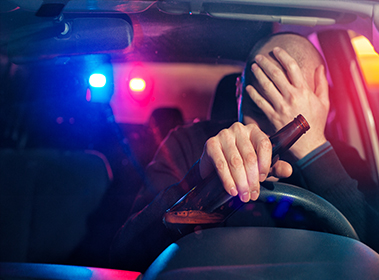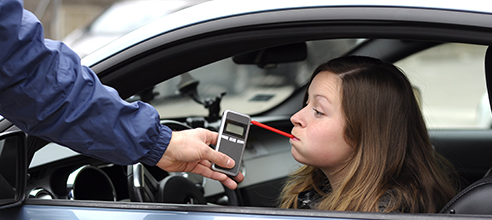Nassau County DWI Attorney
Driving While Intoxicated
 If you have been arrested and charged with DWI, you need to contact an experienced DWI attorney to handle your matter. DWI arrest and conviction have many consequences. Drivers arrested for DWI face jail, probation, seizure of a motor vehicle, driver license revocation, fines and penalties, various programs, ignition interlock and of course criminal conviction. It is very important to be represented by an experienced Nassau County DWI lawyer from the very beginning as DWI cases are very technical, have many details that inexperienced attorneys or attorneys who do not regularly practice in this area may not be aware of. Attorneys at Sharifov & Associates, PLLC are very experienced Long Island DWI Lawyers and represent clients at all stages of DWI case: arraignment, pre-trial representation, suppression hearings, motion practice and trials.
If you have been arrested and charged with DWI, you need to contact an experienced DWI attorney to handle your matter. DWI arrest and conviction have many consequences. Drivers arrested for DWI face jail, probation, seizure of a motor vehicle, driver license revocation, fines and penalties, various programs, ignition interlock and of course criminal conviction. It is very important to be represented by an experienced Nassau County DWI lawyer from the very beginning as DWI cases are very technical, have many details that inexperienced attorneys or attorneys who do not regularly practice in this area may not be aware of. Attorneys at Sharifov & Associates, PLLC are very experienced Long Island DWI Lawyers and represent clients at all stages of DWI case: arraignment, pre-trial representation, suppression hearings, motion practice and trials.
DWI stands for diving while intoxicated. One way prosecutors prove driver intoxication is through scientific testing of the amount of alcohol in the body, usually by analyzing the breath or blood. These tests are usually administered by machines, such as the Breathalyzer. In every state, a person with a blood-alcohol concentration (BAC) over .08% is considered legally intoxicated. Implied-consent laws create the legal presumption that if a person takes advantage of the privilege of driving, he or she automatically consents to state-administered chemical testing to determine his or her BAC. If a driver refuses to take a chemical-alcohol test, his or her drivers license may be revoked or suspended. BAC test results over the legal limit are usually presumed to be proof of intoxication. However, defendants may challenge the conclusiveness of the results by showing irregularities in the test administration procedure or problems with the test equipment.
Other types of evidence used by prosecutors to show intoxication include drivers’ statements, witness and police observations of behavior and driving patterns, and circumstantial evidence. Police also gather important evidence of intoxication by administering standard field sobriety tests (FSTs) at the scenes of traffic stops. Common field sobriety tests include:

- Finger-to-nose test
- Walk-and-turn test
- Horizontal-gaze-nystagmus test
- Counting backwards
- Reciting the alphabet
- Standing on one leg
What happens if a driver refuses to submit to a chemical test?
If motorist refuses to submit to a chemical test after being arrested, upon his arraignment, his license will be immediately suspended by the presiding judge.
The license will remain suspended for 15 days or until the date of the DMV hearing, whichever comes first. Failure of the motorist to appear at the DMV hearing constitutes a waiver and will result in revocation. At the time of such DMV hearing an administrative judge will decide the following:
- Whether the arresting Police Officer had reasonable grounds to believe that the motorist was operating his vehicle in violation of any subdivision of Article 1192.
- Whether the arrest of the motorist was lawful
- Whether the motorist was given sufficient warning in clear and unequivocal language prior to his refusal to submit to the chemical test or any portion thereof would result in the immediate suspension or revocation of their license or privileges whether or not they were found guilty of the charge for which they were arrested.
- Whether the motorist refused to submit to the chemical test.
DMV Hearing is a very very important hearing.
NOT ONLY BECAUSE AN ADVERSE FINDING WILL HAVE A SEVERE CONSEQUENCE ON THE MOTORIST BUT ALSO FOR THE CRIMINAL CASE AGAINST THE MOTORIST.
THEREFORE, MOTORIST/DRIVER MUST RETAIN EXPERIENCED ATTORNEY TO REPRESENT HIM AT THIS HEARING
New York DWI Penalties.
Depending on the level and type of DWI offense (e.g., Aggravated DWI, DWI, DWAI, DWAI-Drugs, DWAI-A/D, etc.), how many prior convictions appear on your record, and even the particular county in which you were accused, plea offers and penalties can vary.
Below is a short, basic introduction to the penalties associated with a conviction for various DWI-related offenses. The list by no means lists all of the penalties and consequences associated with any DWI-related conviction. Only a New York DWI attorney can provide you with that level of knowledge and detail.
- A fine of no less than $300 and no more than $500.
- Possible jail time of up to 15 days.
- Loss of license for 90 days.
(i.e., no prior DWI convictions within 10 years)
- A fine of no less than $500 and no more than $1,000.
- Possible jail time of up to 1 year.
- Possible probation of up to 3 years.
- Loss of license for at least 6 months.
- Ignition Interlock Device for at least 12 months
- A fine of no less than $500 and no more than $1,000.
- Possible jail time of up to 1 year.
- Possible probation of up to 3 years.
- Loss of license for at least 6 months.
- Ignition Interlock Device for at least 12 months.
- A fine of no less than $1,000 and no more than $2,500.
- Possible jail time of up to 1 year.
- Loss of license for at least 1 year.
- Ignition Interlock Device for at least 12 months.
- Class E Felony criminal conviction (Leandra’s Law).
- Possible prison time of up to 4 years
- Possible probation of up to 5 years
- A fine of no less than $1,000 and no more than $5,000
- Ignition Interlock Device for at least 12 months and up to a period of probation
- Loss of license for at least 1 year
DWI is an incredibly technical field – in terms of the law, in terms of the fact pattern associated with each DWI case, in terms of the science involved, and in terms of how the DMV and criminal justice system treat it. Because of this, you need a lawyer who is current with ever-changing DWI laws, who is experienced in Trial Courts and who will fight to protect your rights and privileges.
Call now Email now
